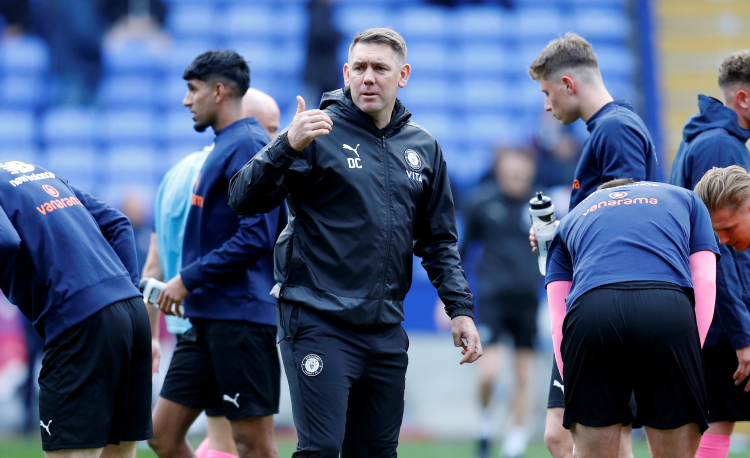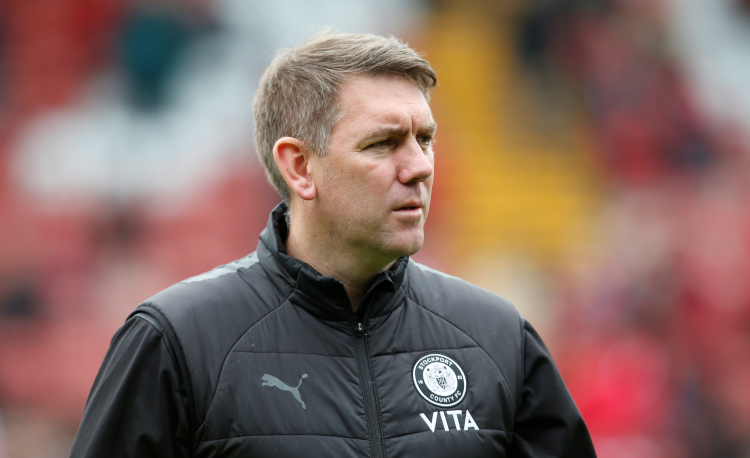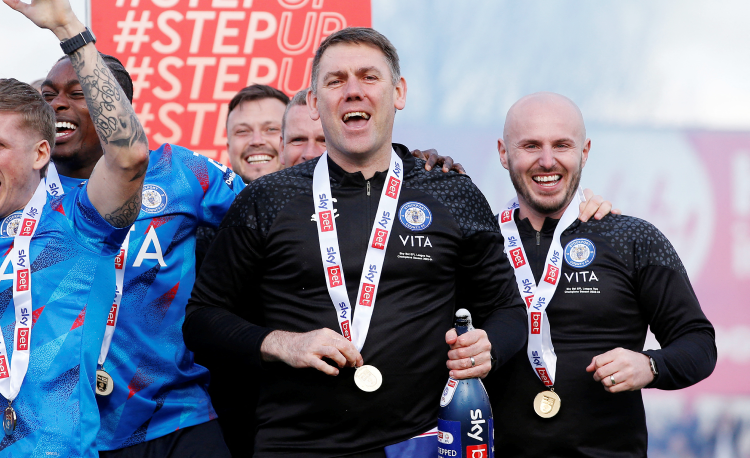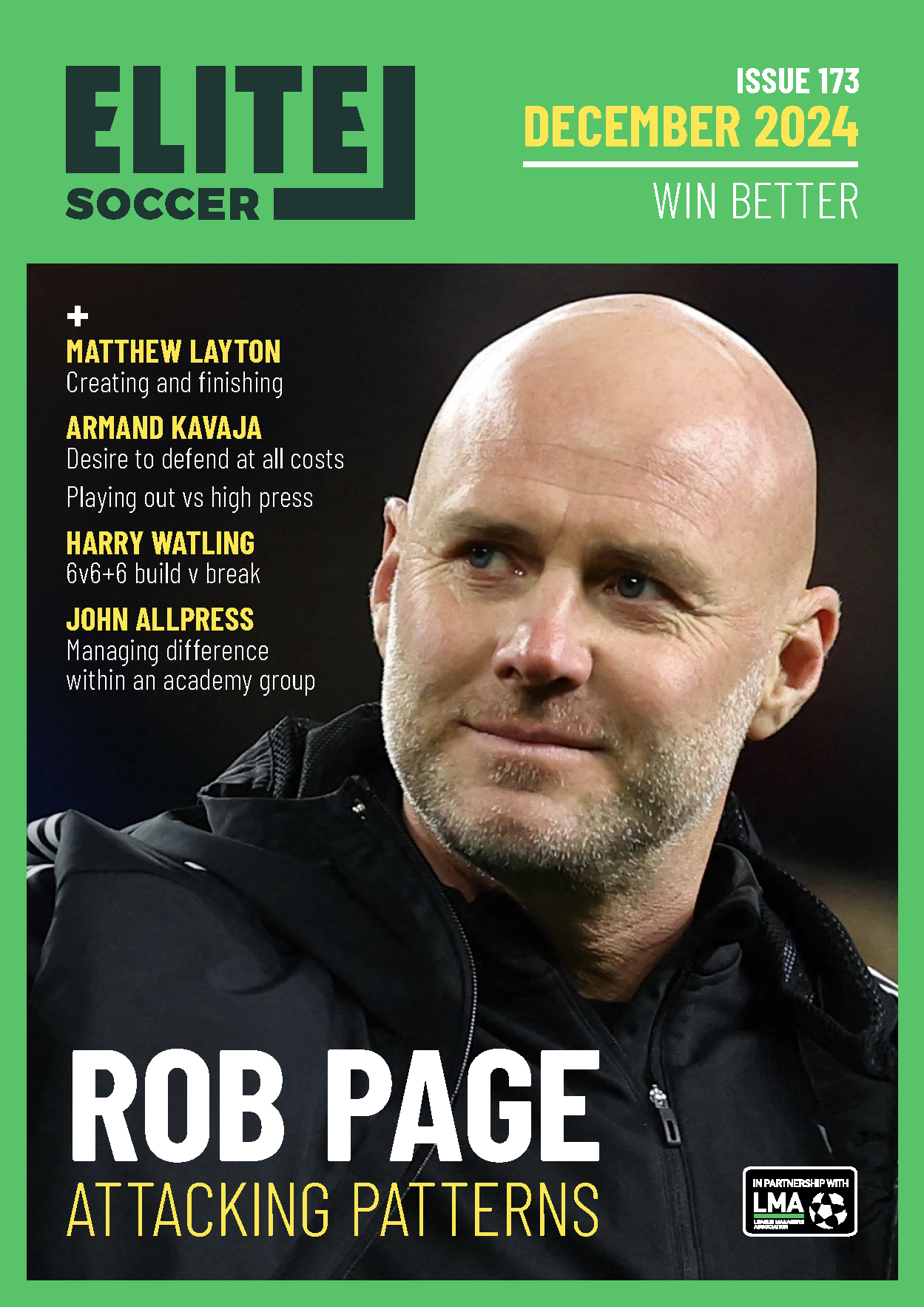You are viewing 1 of your 1 free articles
Spotlight on: Dave Challinor
Stockport County’s Dave Challinor has achieved seven promotions across four clubs over the course of a 14-year managerial career. the current LMA league two manager of the year tells us the story of some of those promotions as he reflects on his career thus far.
Challinor’s career at a glance
| Played | Won | Draw | Lost | Win % | |
|---|---|---|---|---|---|
| Colwyn Bay May 2010 – November 2011 |
66 | 34 | 12 | 20 | 51.5 |
| Northern Premier League Premier Division play-offs | |||||
| AFC Fylde November 2011 – October 2019 |
415 | 226 | 93 | 96 | 54.5 |
| Northern Premier League Division One North Northern Premier League Premier Division play-offs National League North FA Trophy |
|||||
| Hartlepool United November 2019 – November 2021 |
90 | 41 | 24 | 25 | 45.6 |
| National League play-offs | |||||
| Stockport County November 2021 – present |
150 | 84 | 33 | 33 | 56 |
| National League EFL League Two |
|||||
DAVE ON: combining his possession-based style of play with winning and gaining promotion through the lower leagues
I think everyone will have the blue sky thinking philosophy of what football looks like. You need to be able to adapt that in terms of the environment you go into. When I was starting off at Colwyn Bay, we had a couple of training sessions a week, one hour or sometimes even half an hour on astroturf. I knew most of the players, that was why I brought them in. You want to make it as simple as possible around how you go about things. I’m not a big one on shapes because you pick a shape that suits your players. We played a 4-3-3. We got promoted in our first year, which was brilliant against all the odds with a really low budget, with a really good group of players.
I quickly then got the opportunity to move on to Fylde, which was a big jump for me because I was jumping backwards two divisions, and there was a plan in place for that club to be successful. There was a pressure to win football matches, probably a little bit similar to my time at Stockport County in the last couple of years.
We had a good budget for the level that we were at, and we were able to recruit good players, which will always make it easier for you as a manager. Within that, the club had a real blueprint of what they wanted and it was very business-led. There was a five-year plan with key issues and all of the things that you had to do. One of the visions of the club was to play positive, fast, attractive football, so you’re obliged to do that, and that fitted with my philosophy anyway.
We had three promotions and in every other season we got to the play-offs as a minimum. We were 90 minutes away from going from what was the Evostik Division One North to the Football League. When I left Fylde a day later I got a phone call from Hartlepool. I’d been in the job for probably going on 10 years, without either a rest and or a break, and you think, ‘Maybe now’s the time to be able to go and look at me and reflect on me and where I need to improve and what I need to do better.’
But the opportunity to go into Hartlepool was one that was too good to turn down. The north-east is a special place to play and manage a football team, because it is massively tribal. Initially the team were a little bit passive. They were almost a counterattacking team, even when they were playing at home – but the fans wanted them to be on the front foot, which is also how I want my team to play. As much as we want to try and have control, I want my possession to be purposeful, to try and steamroll teams and win games, and that fitted really well up there. We got that. We got the place bouncing with the players that we brought, and tried a different shape, a 3-5-2. We got promotion back to the Football League in a play-off final on penalties after the goalkeeper equalised against us in the 97th minute, so the game had absolutely everything.
And it made me a Football League manager and Hartlepool United a Football League club again - and I’d never been given the opportunity to manage in the Football League. When Stockport came calling in the November, it left me with a real tough decision. The owner obviously wanted to get to the Championship in seven years and the infrastructure in place is amazing.
Plus it was back to the north-west for me, so it was a brilliant opportunity.
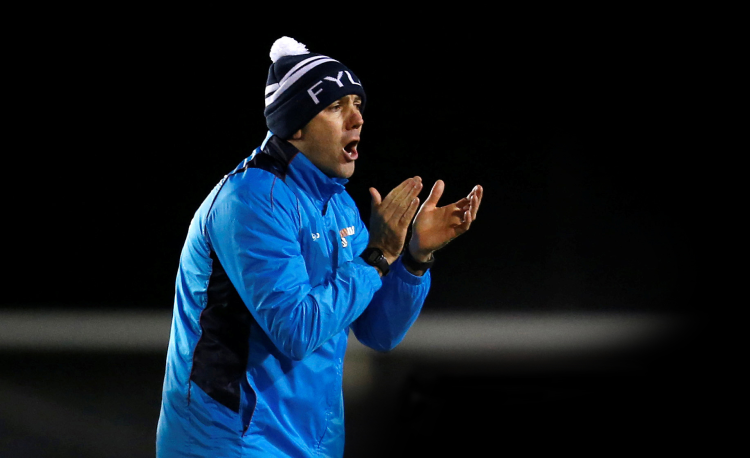
Our first game was Bolton away in the FA Cup, and I wanted to go and be really aggressive with the group. They were unbelievable. They just needed the shackles letting off. We drew the game 2-2. We came back 10 days later in the replay, and won 5-3 on the TV in extra-time.
“The challenge for us in League One will be - can we continue to have our identity against better players? ”
We kicked on from there. We had a brilliant run and won the National League in that season, then kicked on again into League Two, and had the real disappointment of losing a play-off final on penalties. But this year has been a brilliant one for us. We’ve stuck to our principles. You have to have players that want to buy into what you do. But I think our style gives the players that we have the best opportunity, not just to be successful here, but be successful higher than here, because modern football is high intensity. It’s about being able to press. It’s about being able to run. It’s about being able to control and pass the ball. Some people will see it slightly differently. Some people will see it as possession being everything. Possession is important to us. We want it to be purposeful. We crossed the ball more than any other team this year. We’ve got promoted by scoring the most goals and I think conceding the second least. So I think we’ve got that balance right. The challenge for us next year in League One will be - can we continue to have our identity against better players? And that becomes a really exciting task for us.
DAVE ON: quickly facilitating Stockport’s 21-match unbeaten run in the 2021-22 season. the team gained 59 out of a possible 66 points during Challinor’s first five months in charge
You need players to buy into what you’re doing. You have to earn respect through the sessions you put on and how you deliver your messages. Plus - and I say this without doing myself and our staff a disservice - we had a really strong group that was underachieving.
We came in with a clear plan that we were going to be really aggressive and try and steamroll the teams. And it could have gone against us, but it lit the blue touch paper for the group of players that we had. They just wanted to go and express themselves in a really positive way, and put together an unbelievable run of run of performances.
“You have to earn respect through the sessions you put on and how you deliver your messages”
DAVE ON: balancing experience and youth when building a squad
Loans have been massive for us and have been massive for my previous clubs. They can absolutely make a huge difference if you get the right ones in. Quite openly for the last few years this club has been a buying club, if you like; trying to buy success, going and getting ready-made players, and now, all of a sudden, tilting the balance a little bit and looking towards building and bringing through our own player. A lot of that comes because of the academy getting set back up by getting back into the Football League.
We’ve lost some brilliant, experienced players that have been fantastic for me and fantastic for us. But the club’s going in a slightly different direction. The tendency can be to go a little bit safe and a little bit tried and tested, but there are some brilliant young players around and you don’t know what you’ve got or how they’re going to react until they get those opportunities.
You want to take some chances on young players that you think can progress. Ethan Pye is a prime example of that. Ethan was released from Rochdale, brought in here and made his debut the game before I came in.
And when I came in, I wouldn’t say he had a bit of a wobble, but he wasn’t quite at it. We managed to get Ethan 20 loan games, at Spennymoor Town, spending much of the back end of that season at left-back. We then got him a full season at Gateshead playing as a centre-back in the National League and he did really well.
At that point, we knew that we were going to take the plunge on Ethan a little bit and chuck him into a League Two team and expect that there might be a little bit of heartache early on, that there might be some mistakes for a young player playing at centre-back. And there were. But he learned so quickly and developed so quickly. We now have a situation where going into League One and if he can play 45 games in League One next year, we’ve got an unbelievable asset on our hands, a left-sided centre-back who can run, who is good in the air, who is good on the ball, who is composed.
All we’re doing as a club now is look for more of those things. The signings we’ve made up this point are of a profile that have been at big clubs, maybe not had the opportunity at big clubs and have to drop down a little bit, but we think have real potential to be able to improve with us and ultimately become real assets.
Related Files

DAVE ON: HIS INFLUENCES IN THE GAME
It’s strange. Football’s moved on so much. When I was playing, the dressing rooms tended to be run by the more senior players, and there wasn’t real in-depth knowledge of tactics. We give players everything now! In the early days when I was starting at Tranmere, when John Aldridge was the manager, we had senior players there that were experienced internationals, and you were almost sent out as a team of 11 and told, ‘You’ve got an idea of who you’re playing against, go and beat that 11, go and find a way.’ As coaches now, because of all of the technology we have around being able to analyse, we probably try and make it black and white and make it too clear for players.
I moved on to Stockport where Carlton Palmer was the player-manager. Mark Prudhoe was a goalkeeper coach, Mark Beasley was on the staff, Colin Murphy was on the staff: there was a brilliant group of proper old-school coaches. We had a great time, and we had a really young group of players who went on to do really well in terms of individually. The club at the time was in a completely different state to the way it is now.
I then moved on to Bury where Graham Barrow was the manager – a great man-manager - and gave me lots of responsibility. That was my first real look into coaching, which was useful as I had to retire from full-time football because of a knee injury.
Very quickly I was offered the job at Colwyn Bay, but I still wanted to play if I could. So I became what Carlton Palmer was at Stockport: I was a player-manager to start with, and I almost tried to manage the game from on the pitch.
You learn, I’m still learning. You learn every day as a manager. I started at the very bottom with no infrastructure in place, having to do everything to now in a place where I’ve got brilliant staff around me and a director of football that makes my job as easy as possible to give ourselves the best chance of being successful on the pitch.
DAVE ON: how he defines coaching
It’s tough because the game’s changed, society’s changed, everything has moved on in terms of people reacting differently. I played in an environment where it was sink or swim. Better players than me didn’t make it because they were in quite hostile environments, because that’s the way football was, that’s the way the world was. And the world’s very different now. And regardless of whether you’re 19 and learning, or 34 and coming to the end of your career, everyone’s different. So that 19-year-old might react better to a kick up the backside than the 34-year-old who’s gone through a whole career and thinks he knows more than what I do, who wants an easier life.
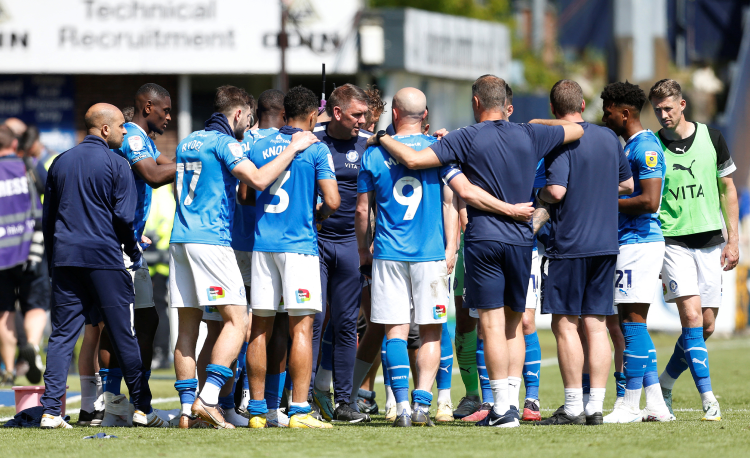
So everybody’s different, but one thing’s for certain, everyone wants to be better. And I’ve got better, over time. I think when you come out of playing and then go into management, it’s so frustrating on the sidelines watching, because the impact you can have is minimal. The rewards for me as a manager compared to a player are far greater, but the disappointments are far greater.
“The rewards for me as a manager compared to a player are far greater, but the disappointments are far greater too”
I’m a terrible loser and I’m not a great winner, to be honest; I want them to be better and I want them to be perfect, but that’s only for their benefit. I’d be demanding of my kids, so I’m demanding of them, but there will be times when they’ll have bad spells. That happens whether you’re 19 or 35, there’ll be stuff going on outside of football which can affect you, that myself and my staff have to be acutely aware of.
Football can be a brutal industry at times, but when I stopped playing, my desire was to make sure that I stayed in it. I did a physio degree to try and make sure I tried to stay in professional football. I’ve been really fortunate from the day that I stopped playing that I’ve been one day out of work. I’ve thoroughly enjoyed it and I’m really looking forward to what’s in front.
Editor's Picks
Using the goalkeeper in build-up play
Pressing principles
Intensive boxes drill with goals
Penetrating the final third
Creating and finishing
My philosophy
Pressing initiation
Compact team movement
Defensive organisation
Coaches' Testimonials

Alan Pardew

Arsène Wenger

Brendan Rodgers

Carlos Carvalhal

José Mourinho

Jürgen Klopp

Pep Guardiola

Roy Hodgson

Sir Alex Ferguson

Steven Gerrard
Coaches' Testimonials

Gerald Kearney, Downtown Las Vegas Soccer Club

Paul Butler, Florida, USA

Rick Shields, Springboro, USA

Tony Green, Pierrefonds Titans, Quebec, Canada
Join the world's leading coaches and managers and discover for yourself one of the best kept secrets in coaching. No other training tool on the planet is written or read by the calibre of names you’ll find in Elite Soccer.
In a recent survey 92% of subscribers said Elite Soccer makes them more confident, 89% said it makes them a more effective coach and 91% said it makes them more inspired.
Get Monthly Inspiration
All the latest techniques and approaches
Since 2010 Elite Soccer has given subscribers exclusive insight into the training ground practices of the world’s best coaches. Published in partnership with the League Managers Association we have unparalleled access to the leading lights in the English leagues, as well as a host of international managers.
Elite Soccer exclusively features sessions written by the coaches themselves. There are no observed sessions and no sessions “in the style of”, just first-hand advice delivered direct to you from the coach.
